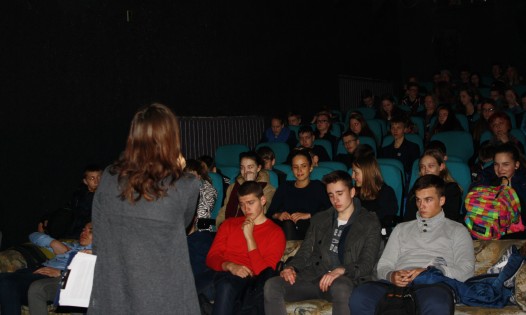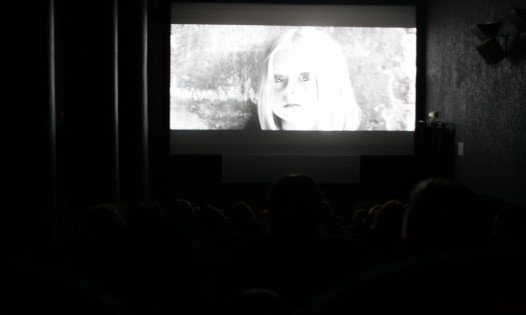Screening of „Gražuolė”
Mokyklinės peržiūros
15 Bal 2015
Meno AvilysVilnius, Skalvija Cinema Center
15-17 year old students from two different schools participate at the screening of the Lithuanian feature film "Gražuolė" by Arūnas Žebriūnas (Beauty, Lithuania, 1969) at the art-house cinema theatre “Skalvija”. After the screening they attend the discussion led by the film critic Auksė Kancerevičiūtė. The screening is a part of the screening cycle Three Generations organised by Meno Avilys.
The film Gražuolė belongs to Lithuanian cinema classics. Its main hero is a little girl, sensitive and open to the surrounding world. The film explores the theme of external and inner beauty through her relationships with children from neighborhood and her mother. Poetic language of the film, its visual metaphors and associations reveal the necessity of inner resources as well as inner beauty of a human being – feelings, dreams, faith and memories. Moreover, the film possesses a lot of hints about the independence of Lithuania and its soviet occupation, the tension between soviet industrialization and historical memory. The film also stands out for the expressive camerawork and subtle performance of the main actor Inga Mickytė.
Before the film screening Auksė Kancerevičiūtė introduced the creative work of the prominent Lithuanian film director Arūnas Žebriūnas and its film Gražuolė to the students from Žemyna gymnasium and Mintis gymnasium. She focused not only on the context of cultural life in Lithuania in 60s and 70s but also on the film language (camera movements and types of shots). After the screening Auksė Kancerevičiūtė led a discussion about the following topics: conception of the external and internal beauty; feelings of the main character and her relations with children from neighborhood and her mother; the impact of the camerawork on the perception of the inner state of the characters; differences between childhood experiences of the contemporary generation and that of 60s-70s. The film critic also encouraged students to reflect on the freedom of artistic expression in the totalitarian regime, poetic film language and its elements (metaphors, associations, sounds).
Films
Gražuolė by Audrius Stonys (Beauty, Lithuania, 1969)



